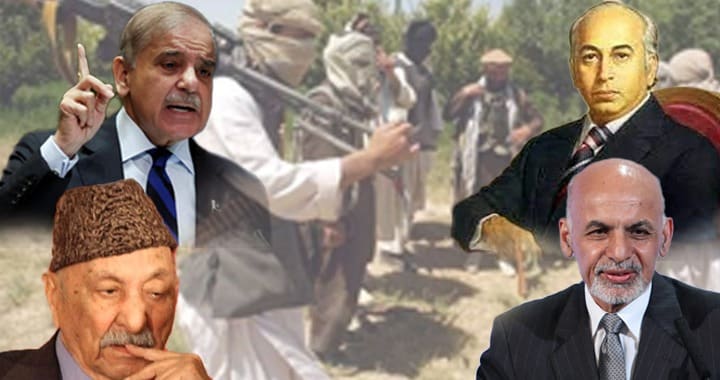Muhammad Haseenullah
For a long stretch of history Pakistan and Afghanistan have been described as “neighbouring and brotherly Muslim countries.” Yet that brotherhood has rarely translated into a stable, trusting relationship. If anything, over the decades a pattern of mutual suspicion, interventions and blame has hardened into a political habit, one that has cost both countries dearly and weakened the stability of the wider region.
This is not a shortcoming that can be explained by a single incident or personality. Rather, it is the product of overlapping histories, competing nationalism, shifting regional alliances and the persistent involvement of outside powers. To understand why the friction endures, and what might finally loosen it, we need to look at the long arc of modern Pak-Afghan relations and the incentives that keep both capitals looking over their shoulders.
A history of interference and grievance
The seeds of dispute predate Pakistan’s founding. In 1928–33 Afghanistan endured palace coups and violent power transitions long before the subcontinent’s partition; by 1947, Afghanistan’s claim to parts of the Pashtun-inhabited frontier (then the North-West Frontier Province) was an early indicator that Kabul and the new state in Islamabad would not see eye to eye. Afghanistan was famously reluctant to recognise Pakistan at independence and even pressed territorial claims, which were later settled by a referendum in the frontier region that chose accession to Pakistan.
The Cold War and the years that followed hardened mutual mistrust. In the 1950s and 60s riots, embassy attacks and the severing of diplomatic ties punctuated relations. A turning point came in 1973 when Daud Khan overthrew the monarchy; his government pursued an assertive, and what Pakistan perceived as expansionist, policy toward Pakistan’s western provinces. Pakistan’s political leadership under Zulfikar Ali Bhutto responded by backing Islamist movements that countered pro-Kabul influence, a tit-for-tat that would prove consequential.
The Soviet invasion of 1979 reshaped the region. Pakistan, with U.S. backing, became a frontline state in supporting Afghan mujahideen against the Soviets. That support left Pakistan with a complicated legacy: praised for resisting Soviet expansionism, yet saddled with militant networks, refugee flows and porous borders that would later be exploited by extremist groups.
The post-Soviet civil war and the rise of the Taliban hardened narratives on both sides. Kabul’s suspicion that Pakistan sheltered or supported the Taliban given Islamabad’s early recognition in 1997 fed accusations of interference. After 2001, when the U.S. intervention toppled the Taliban, allegations of a “double game”, that Pakistan simultaneously cooperated with the United States while maintaining contact with insurgent networks, surfaced in Washington and Kabul. These accusations weakened trust and made cooperation on counterterrorism and border management harder to sustain.
Mutual security dilemmas and external patronage
Two dynamics keep the distrust alive. First, each state perceives the other’s influence among border populations as a national security risk. For Kabul, any Pakistani footprint in Afghan politics appears to be a threat to sovereignty; for Islamabad, an Afghan-friendly India or an Afghan government unwilling to clamp down on anti-Pakistan militants is an existential threat. Second, both capitals have periodically leaned on external patrons; India, Iran, the U.S., Russia, to balance each other. That external involvement amplifies fears of proxy competition and reduces incentives for bilateral trust-building.
The human cost has been high. Cross-border raids, militant safe havens, refugee crises and economic disruption have made instability self-perpetuating. Ordinary people on both sides of the Durand Line have paid the price while elites trade accusations in international forums.
So what might change? Three pragmatic steps
Institutionalise practical cooperation:
Rather than broad declarations, Pakistan and Afghanistan should institutionalise cooperation on immediate, mutually beneficial issues: cross-border trade facilitation, integrated border management, refugee repatriation frameworks and joint counterterrorism task forces. Practical wins build credibility faster than diplomatic rhetoric.
Depoliticise people-to-people ties:
Economic interdependence and cross-border social links are the most durable stabilisers. Transit corridors, shared markets, and cooperation on health and education in border districts would create constituencies that benefit from peace, making conflict costly for spoilers.
Limit third-party zero-sum approaches:
External actors will always have influence, but Islamabad and Kabul should insist on regional platforms that reduce bilateral mistrust; for example, mutually agreed confidence-building measures mediated through a neutral, respected forum that helps verify compliance on contentious issues.
A final reality check: Reciprocity, not Surrender, Must be the Watchword
Pakistan cannot be expected to tolerate cross-border operations that threaten its citizens; Afghanistan cannot be expected to abandon its sovereignty concerns. But retaliation and tit-for-tat policies have not worked. The only durable option is a negotiated, verifiable reduction in interference backed by economic incentives for cooperation.
Why should readers care?
Because the conflict is not a bilateral curiosity stuck in a remote borderland. A destabilised Afghanistan-Pakistan frontier feeds extremist networks, refugee flows and regional competition that reverberates far beyond their shared 2,000-kilometre border. If the two neighbours can move beyond historical grievance and build a new, practical relationship grounded in shared interest, the dividend will be peace and prosperity for millions; and a safer neighbourhood for all.
History has left both countries a difficult legacy. But history also offers lessons: the costs of conflict are visible, and the benefits of cooperation are tangible. The choice now is political will: will Kabul and Islamabad choose rivalry or mutual resilience? The region cannot afford many more years of the former.





